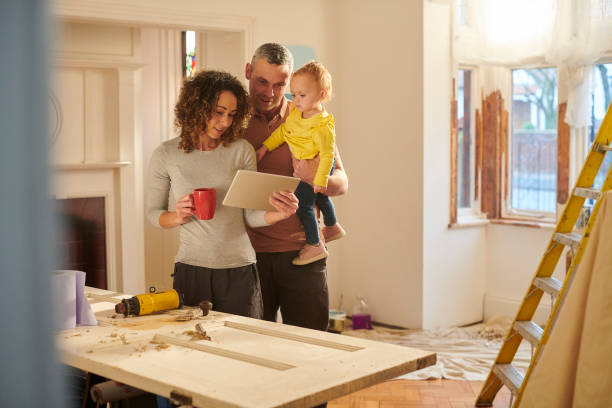The Future of Home Construction – Trends to Watch
The future of home construction is poised for a paradigm shift, with several key trends shaping the industry. One of the most prominent trends is the increasing integration of advanced technologies, such as 3D printing and robotics. These innovations promise to revolutionize the construction process by enhancing efficiency, reducing costs, and allowing for more intricate designs. 3D printing, in particular, has the potential to disrupt traditional construction methods, enabling the creation of entire houses in a matter of days. This not only accelerates the building process but also minimizes waste and environmental impact. Sustainability is another pivotal trend in the future of home construction. As environmental concerns continue to gain traction, builders are embracing eco-friendly materials and practices. From recycled building materials to energy-efficient designs, sustainability is becoming a cornerstone of modern construction. This shift is driven not only by environmental consciousness but also by the growing demand from homeowners for energy-efficient and eco-friendly living spaces.

As regulations and consumer preferences align towards greener options, the construction industry is likely to see a widespread adoption of sustainable practices. The concept of smart homes is rapidly evolving, and it is reshaping how homes are constructed. With the rise of the Internet of Things IoT, homes are becoming increasingly connected and intelligent. Smart construction involves integrating sensors, automation, and connectivity into the fabric of a home. This allows homeowners to control various aspects of their living spaces remotely, from adjusting the thermostat to monitoring security systems. Builders are now incorporating smart technologies into the construction process itself, laying the groundwork for homes that are not only comfortable and convenient but also highly responsive and adaptive to the needs of their inhabitants. Modular construction is gaining momentum as a cost-effective and time-efficient alternative to traditional building methods. By prefabricating components in a controlled factory environment, construction timelines can be significantly reduced, leading to faster project completion and lower costs.
Modular construction also offers a higher degree of customization, allowing homeowners to choose from a variety of pre-designed modules or even create their own bespoke configurations. This trend not only addresses the challenges of labor shortages and rising construction costs but also provides a scalable and flexible approach to meeting the diverse needs of homeowners visit the page https://sagerconstructionllc.com/fredericksburg/. In conclusion, the future of home construction is being shaped by a confluence of technological advancements, sustainability imperatives, smart home integration, and modular construction practices. These trends collectively point towards a more efficient, sustainable, and technologically advanced construction industry. As these innovations continue to mature and gain widespread acceptance, they have the potential to redefine the way homes are built, making them more accessible, environmentally friendly, and intelligent. The evolution of home construction is an exciting journey into a future where homes are not just structures but dynamic, responsive, and integral components of a technologically advanced and sustainable living environment.
